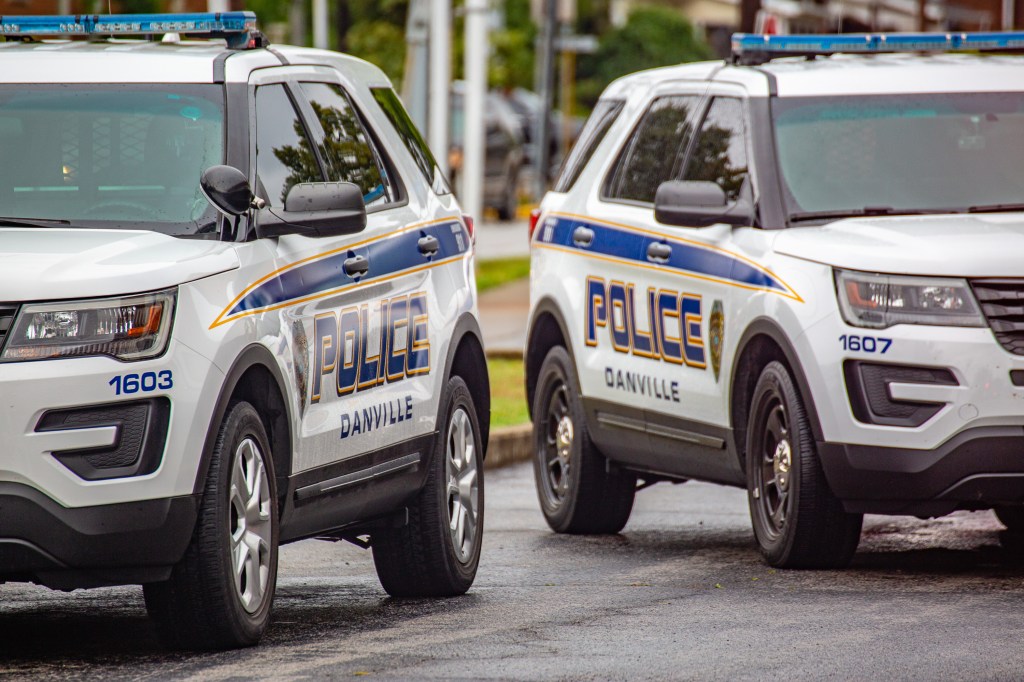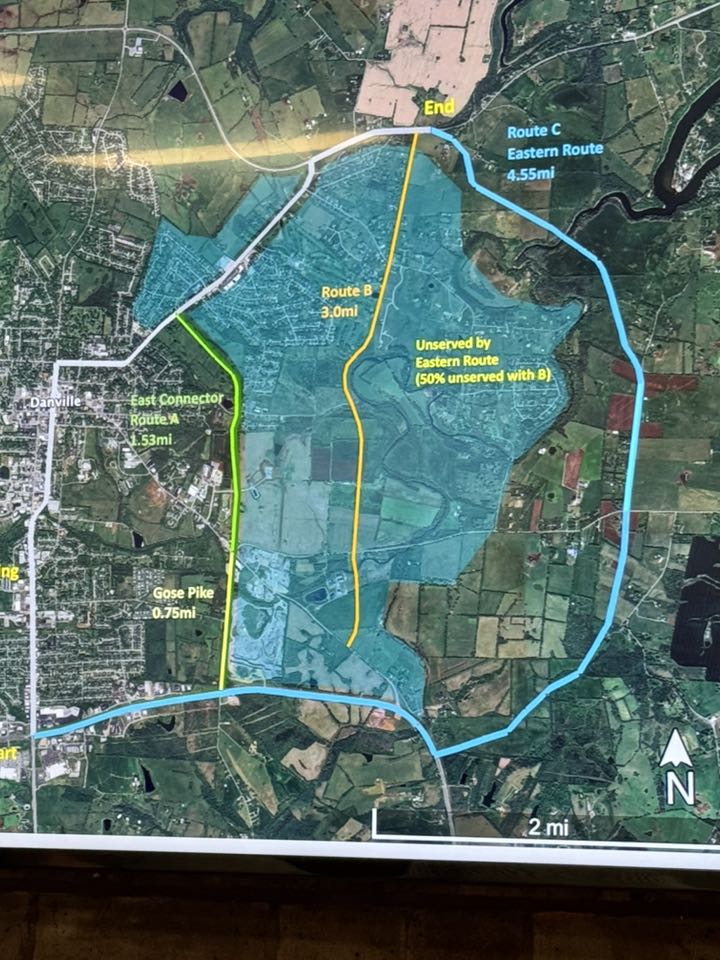Danville increases insurance premium tax to pay first responders
Published 7:33 pm Wednesday, March 11, 2020
In a move to “stop the hemorrhaging,” Danville City Commission unanimously passed the first reading of an insurance premium tax increase from 8% to 10%. City Manager David Milliron recommended the move for the purpose of addressing a “significant shortfall on pay parity” with the city’s police, fire and 911 communications departments.
Insurance premium taxes are paid by all life, stock and mutual insurance companies doing business in Kentucky. Milliron said raising the rate to 10% puts Danville on par with what’s levied by other surrounding communities throughout the state, according to research he and the staff have done, including information obtained through the Kentucky League of Cities.
The last time the insurance premium tax was increased was in the ‘14-’15 budget year.
Trending
“It’s a consumption tax,” Milliron said. “It’s the fairest tax across the board, with regards to insurance premiums. It’s the most simplest way to level the playing field to generate revenue necessary to address those salaries.”
He said public safety workers “are putting their lives on the line every day, and certainly I’d hope the commission would recognize and agree that they need to be paid a fair salary.”
He added that, “given the fact that the Kentucky Retirement System is forcing us to pay 12% into that benefit every year — and that’s going to continue until we top out — but yet revenue only comes in on an increment of about 2% a year … there’s not much wherewithal to find that money.”
Milliron said the Hanna Resource Group, the firm who completed the initial compensation and classification study, found that the city needs $586,270 in order to get the public safety salaries where the city needs to be. And that 31% of that amount is just in retirement system contributions alone.
He said the change in the insurance premium tax will raise roughly $500,000 for the city, which will “go a far way with addressing” the pay issues with public safety. “Right now, what we have is not sustainable.”
Milliron said his approach with city pay going forward is to have performance assessments for all employees, and that pay changes will be addressed on “anniversary dates after successful performance assessments.” But initially, the city must address starting pay for public safety, “with some immediate changes we did with very little money savings — roughly $100,000 spread over five years, with my change of opting out of the retirement system.”
Trending
However, that initial change “doesn’t go far enough in order to get folks in the pipeline” for open positions, he said. The insurance premium tax increase was the only way he could address those salaries without making “significant cuts.”
Where officers are concerned, Milliron said he applauds “the ones who have been here for five years, but I’d like to see them be here for 10, 20, 30 years.”
He said the city’s fire department is in need of more staff.
“We’re operating right now on seven individuals per shift. If we have one person out, we have to consolidate that manpower at one station, so you actually are basically shutting down one station. We have to address this. So I implore the commission to understand that this is a significant, but — in my opinion — a painless way to do it. You’re not raising any property taxes or ad valorem taxes. It’s a consumption tax … I made clear the groups that are paying that tax.”
Commissioner Denise Terry asked, “For the general public … this is one of the pools we can pull revenue from — and the other ones are?”
Prompted by a question from Commissioner Denise Terry, Milliron said other possible sources of additional revenue come with unacceptable drawbacks.
“… the utilities are already operating at a loss, and you can’t make money on sewer — can’t make or lose money there,” MIlliron said. “So when you recognize where you come up with a cost to maintain your operational staff, you have little options in the general fund. Certainly you could raise property taxes, but your occupational tax is already non-competitive … can’t go any higher on that.”
The city manager said this is why he and staff are “looking at all of the efficiencies” in how the city is operating. “We’re looking to pick up pennies anywhere we can.”
Milliron said the insurance premium tax is “no different from the franchise taxes that they pass on ultimately to the consumer. Yes, it is built into those insurance policies that we all pay. But we all pay that — it’s not just targeting, say, those that own property. That’s why they like to say it’s the fairest of your consumption taxes.”
Milliron acknowledged that “nobody likes taxes.”
“I don’t get great pride up here asking you all to raise, but we have a budget that we have to balance and we have a short fuse to get that done and presented to you, and we only have so many options,” he said. “I have until March 23 to either get clarification from the commission, or inevitably I have to start trimming. And that’s my job, and trim I will.”
Health care cost problem
HR Director Randy Boyd said staff has been “looking aggressively” at the city’s health care plan “to keep the same benefit levels, but be creative in cost containment.” He said there are some initial things they can do to save in the first year, “in the end we hope to be able to free up some funds to put forward to compensation.” He said realistically, they’re looking at a two- to three-year plan to “be able to get health care cost back to where it needs to be.”
Milliron said with where things are headed presently with the city’s health care costs, they are “currently staring at a roughly-estimated double-digit increase,” that could be as high as 22%, which is “why it is our priority.” The city currently pays about $2.2 million in healthcare costs, he said, so the increase could be close to $500,000.
He said it will take time to audit all the records, renegotiate the policies and “do a census of all our employees and their dependants.”
With the increase in retirement contributions, CFO Michele Gosser said the amount paid will go up about $300,000 next year.
Mayor MIke Perros said this is what he’s been saying for four years now.
“We’ve got to have more economic development occurring,” Perros said. “It’s not occuring at a fast enough pace. I’m well on record of saying we’re going to hit the box; that day has arrived — we’re in a box. And we can work our way out, but it’s going to be a tightrope walk, in my opinion.”
Terry pointed out that between retirement and healthcare, the city will be paying roughly $800,000 more in the next year.
“The city of Danville is in a much better position than most of the other cities, tackling this aggressively,” Milliron said. He said Danville has had “great management over the last nine years, but this issue didn’t creep up over night. As I’ve said … city management is like a poker game — this is the hand of cards I was dealt. My charge is to come up with a plan … casting a very wide net to address the issues so we can stop the hemorrhaging.” Part of that is reviewing the efficiency of the overall operation of the city and “ways to grow and diversity our income base, but it will take time. It would be catastrophic to try and fix this in short order and cause great disruption.”







